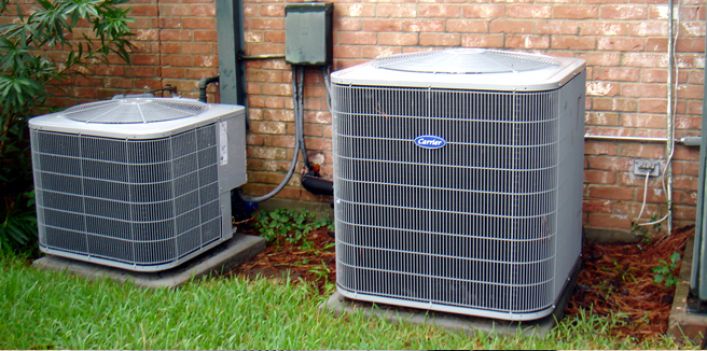When to Get Your Heating and Cooling System Replaced
A new HVAC system installation is a major investment. How do you know when it is time to start looking to replace your old unit? There are a few signs that you can use to let you know that you should consider looking for a replacement heating and cooling system.
Energy Efficiency
The first way that you can tell if your unit may need an HVAC replacement is to take a look at its age. The typical lifespan of a new unit is about 15 years. Yes, some can last longer (and sadly some don’t last that long), but you can safely use 15 years as a good starting point.
A major disadvantage of older units is that they are not nearly as energy efficient as their younger counterparts. This inefficiency is due to technological advancements. If you invest in a new system, the cost that you spend in decreased energy bills may quickly offset the cost of a new HVAC unit. For example, newer units have higher SEER (energy efficiency) ratings, which translate to 20- 50% savings a year after replacement.
The further back in time that you go, the less efficient HVAC systems were. If your furnace was made before 1992, it may not even have an energy efficiency rating at all. Starting in that year, however, efficiencies were around 80%. This rating means that only 80% of the electricity used actually went to making the house warmer.
Aside from technology limitations, as a system ages, its efficiency will degrade. This decrease in efficiency occurs from wear and tear on parts. As the parts age, they are unable to do their job as well as they did before.
Even if you replace parts, that may not be enough to get your system back to peak operating efficiency. What this means is more money spent on energy bills. For instance, an older AC unit with a 10 SEER rating will cost homeowners living in hotter regions about $300 more a year in heating costs compared to a unit with a 23 SEER rating, based on industry averages.
Energy Costs
This leads us to one of the best indicators that your HVAC system may need replaced: sharp increases in energy bills. If you notice that your gas or electric bills have been sharply increasing in recent years, it may not be solely due to the cost of energy. As an HVAC system ages, it loses its ability to operate efficiently and will end up costing you more. Increasing energy bills, especially at times when your unit is operating at peak levels (dead of winter, heat of summer), means it is time to look to replace it.
You can have an expert AC technician come out and examine your unit to determine that these increased costs are the result of the unit degrading over time or whether it is a simple maintenance issue.
Maintenance Costs
If you have regular service done on your unit, you may notice that the cost increases a little bit year by year. If at any time the costs sharply rise, it is time to start looking for a new unit. Maintenance costs are a clear indicator that it is taking more and more to keep your unit up and running.
Older units or units that are nearing the end of their lifespan see more frequent repairs that can add up faster than the cost of buying a new unit. Homeowners that are spending 50% or more of the AC unit’s value on repairs should strongly consider replacing the unit rather than throwing more of their hard-earned money down the hole to repeatedly fix a system on its last legs.
Your Professional Recommends That You Replace Your Unit
Trust that your professional has your best interests at heart when he recommends that it is time to replace your unit. If he has been regularly servicing your unit, he will know its history and when it is time to give up and start looking at HVAC contractors to install a new system.
The good news is that your service professionals should be able to make a good recommendation on what you need based upon what they have observed from your routine maintenance.
Are you in the market for a new heating and air conditioning system? Click here to get free custom quotes from reputable HVAC contractors. You’ll receive upfront pricing without having to invite a contractor to your home or even enter your contact information!
Related articles
The Most Efficient HVAC Systems & How They Can Save You Thousands
What Do the Different Energy Ratings for Heating and Cooling Systems Mean?





Comments
Comments are disabled for this post